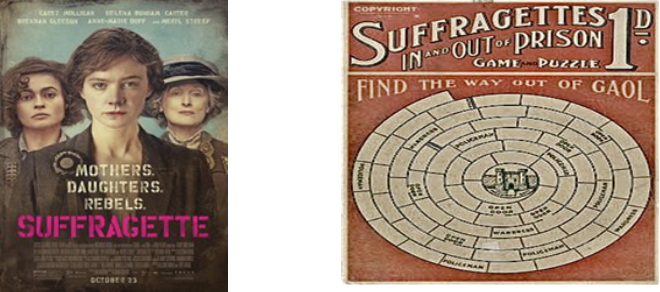2 February 2018

A boy and his father are involved in a car crash. The father dies and the boy needs urgent surgery in order to survive; he will die unless operated upon quickly. He is rushed into the operating theatre. The surgeon enters at speed, ready to operate, but stops, stating ‘I can’t operate on him. He’s my son.’ Who is the surgeon?
Last week I referenced that Lydia Pearson was the first student to cross the threshold when Durham Johnston opened in 1901. A parent contacted the school on Monday because they had known Lydia and her sister in the 1970s. The parent had been a child in Langley Park and Lydia and her sister had been neighbours. Lydia had given the parent a present; the lunch basket that she had taken from Langley Park to the school on South Street each day between 1901 and 1904. (See above).
Lydia Pearson will have experienced the landmark events of the 20th Century. She was 30 years old in 1918 and will have been part of the first generation of women who were eligible to vote. The centenary of the Representation of the People Act is Tuesday 6th February and women voted for the first time in December 1918. Lydia may have voted as she met the age qualification. However, there is less awareness of the other factors taken into account as part of the Act. Lydia may not have been married to a registered voter. She may not have owned property or have studied previously at undergraduate level. Whilst 1918 represented significant progress for women, there were still limitations that slowed the rate of change. There are a huge number of events planned to celebrate the extension of the franchise. In addition to the books and films that are scheduled for 2018, there are also events and exhibitions planned.

Gender can still have a significant impact in the classroom and upon options choices. There are a plethora of academic studies on gender that assert, amongst other things, that: boys answer questions far more than girls in class discussion; girls outperform boys at GCSE; girls internalise criticism and become anxious about perfecting work; boys miss deadlines and write less in exams; girls don’t study maths or science at A Level in sufficient numbers. As a teacher I have seen these findings exemplified, but also contradicted with regularity. An understanding of how women have fought for equality is important for all young people and 2018 represents an excellent opportunity to engage with those initial struggles. Recent issues regarding pay and the public demeaning of women suggest that it would be naive to assume that gender equality has been achieved.
(The opening question is from a Brookline University experiment conducted by Deborah Belle. Only 15% of student and 14% of participating adults identified that the surgeon was the boy’s mother).
Mr O’Sullivan
